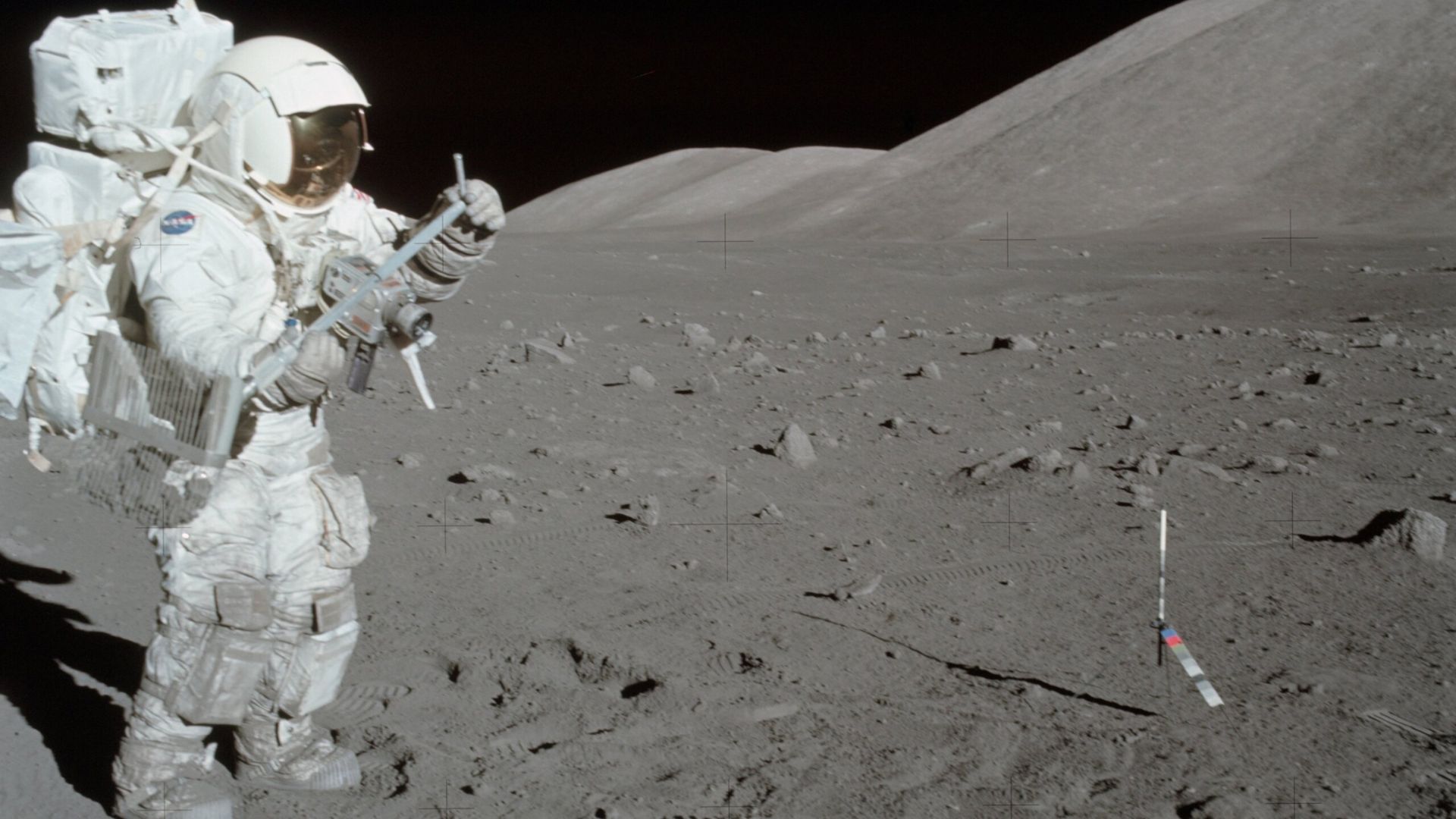Russian scientists have confirmed the authenticity of a lunar soil sample received from the United States, reaffirming its match with lunar soil and dismissing long-standing conspiracy theories. Yury Borisov, CEO of Roscosmos, the Russian federal space agency, revealed this verification while addressing questions regarding the US Moon landings, according to a report by the Russian news agency Interfax. This verification follows an agreement dating back to 1971 between the Soviet Academy of Sciences and NASA, which involved the exchange of lunar soil samples. The samples were brought to Earth by the Soviet Luna 16 mission and the US Apollo 11 and Apollo 12 missions.
“I possess a definitive fact regarding the issue of whether Americans successfully landed on the Moon or not. We once received a sample of lunar soil collected by astronauts during their expedition. Examination by our Academy of Sciences has confirmed it to be genuine lunar soil,” remarked Yury Borisov during a session in the State Duma.
The debate over the legitimacy of the US Moon landings has endured for years, fueled by assertions from conspiracy theorists who argue that the missions were not genuine. Meanwhile, beyond the United States, several other nations have also successfully retrieved lunar samples. On June 25, CGTN television reported that China’s Chang’e-6 lunar module achieved a groundbreaking milestone by successfully transporting lunar soil samples from the far side of the Moon for the first time in history.
Sergei Savelyev, Roscosmos deputy director for International Cooperation, announced on May 28 that Russia and China have established a collaborative center to share lunar research data. This partnership aims to coordinate future lunar missions, including Russia’s Luna 26 in 2027 and China’s Chang’e-7 mission. Afterward, missions Luna 27 and Luna 28 are scheduled for 2028 and beyond, respectively.
India, meanwhile, is preparing for its Chandrayaan-4 mission, aimed at furthering lunar exploration by collecting and returning samples to Earth. This mission promises to expand our understanding of the Moon’s composition and historical evolution. The worldwide effort in lunar exploration continues to reveal fresh findings and partnerships, expanding the frontiers of human understanding and exploration beyond our planet.














